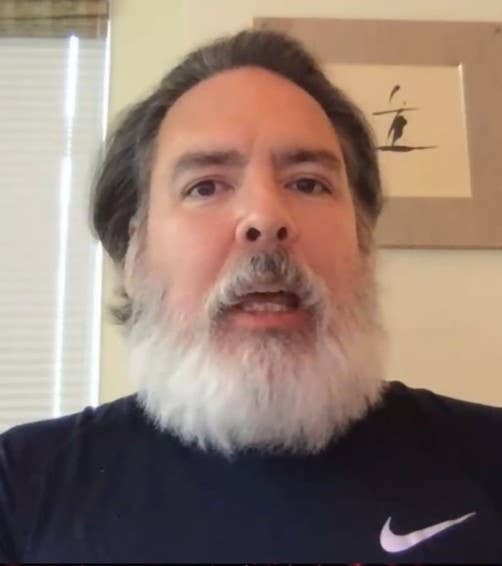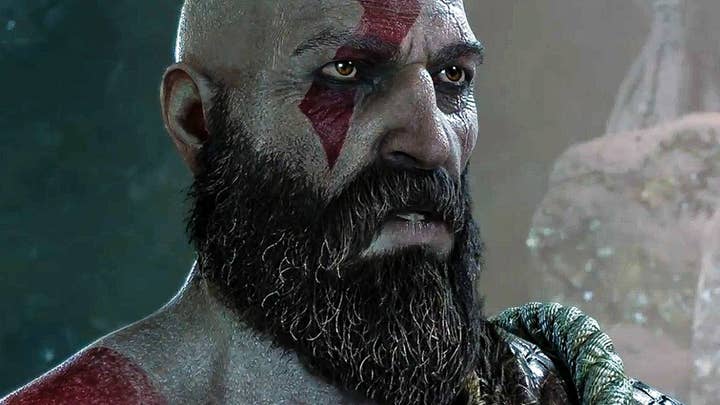Shawn Layden: "I would welcome a return to the 12 to 15 hour AAA game"
At Gamelab Live, the former PlayStation exec discussed the industry's need to rethink the spiralling costs of AAA development
Former PlayStation executive Shawn Layden has called for the industry to examine the trend towards bigger and more expensive games, describing the established AAA model as "just not sustainable."
Layden, who ran PlayStation Worldwide Studios in the latter part of a 25 year period at Sony, was speaking to Gamesbeat's Dean Takahashi as part of Gamelab Live today. In a wide-ranging conversation, the talk turned to Naughty Dog's The Last of Us Part 2, which has been widely praised for its bold handling of difficult subject matter.
Layden departed Sony in October last year, but he expressed great pride in a game that had largely been developed on his watch. Indeed, he described it as "the ultimate example" of a story-driven video game in the PlayStation 4 era.
"We can make you scream and yell and be horrified -- those are the easy ones to get," he said. "But if we can make you contemplative, sad, that's really hitting the full gamut of emotional response to the gaming experience."
"The industry as a whole needs to sit back and go, 'Alright, what are we building?'"
However, while The Last of Us Part 2 might represent a new level of artistic achievement for a specific type of game, it also represents another trend in the games industry. Most players could finish The Last of Us in around 15 hours, but The Last of Us Part 2 takes 25 hours to complete. Naughty Dog spent three-and-a-half years making The Last of Us, while the sequel needed six. Sony isn't likely to disclose the production budget for either game, but the smart money is on a substantial increase there, too.
Layden recalled the days of $1 million production budgets for the biggest games on the market, and referred to a commonly stated theory that the cost of development has doubled with every new generation of consoles.
"The problem with that model is it's just not sustainable," he said, explaining that the current generation has seen the cost of development reach between $80 million and $150 million for most AAA games -- excluding marketing costs -- with production taking up to five years from start to finish.
"I don't think that, in the next generation, you can take those numbers and multiply them by two and think that you can grow," he continued. "I think the industry as a whole needs to sit back and go, 'Alright, what are we building? What's the audience expectation? What is the best way to get our story across, and say what we need to say?'

"It's hard for every adventure game to shoot for the 50 to 60 hour gameplay milestone, because that's gonna be so much more expensive to achieve. And in the end you may close some interesting creators and their stories out of the market if that's the kind of threshold they have to meet... We have to reevaluate that."
Takahashi mentioned a handful of games that fit into a picture of ballooning team sizes, production times, and budgets: Read Dead Redemption 2, God of War, and The Last of us Part 2. Layden oversaw the creation of two of those games, but he also pointed out that the "crackshot" team at Sony Interactive Entertainment San Diego made each installment of MLB The Show in the space of a single year. With 13 studios in his purview, Layden saw his role as providing "a clean runway" to allow each one to achieve its specific goals, however many resources that required.
"Going into the next generation, not only is that an important role in management... It's also, perhaps, really evaluating what we can continue to put into games -- at what cost can you continue to create these games?"
The single most important reason why the AAA model is unsustainable is not escalating costs or team sizes, though. Rather, it is "one of the weird freaks of nature" in Layden's 25 year career in the games business: no matter how big the games get, the basic price has always stayed the same, and the audience is very sensitive to the idea of it ever being higher.
"Instead of spending five years making an 80 hour game, what does three years and a 15 hour game look like?"
"It's been $59.99 since I started in this business, but the cost of games have gone up ten times. If you don't have elasticity on the price-point, but you have huge volatility on the cost line, the model becomes more difficult. I think this generation is going to see those two imperatives collide."
For Layden, who has been on sabbatical since he left Sony, this is the major issue that the AAA industry must solve as the next console generation approaches. Epic Games chose to use the new PlayStation hardware to demonstrate the potential of Unreal Engine 5, and while Tim Sweeney talked up the efficiency its tools will offer to developers, Layden was absolutely certain of one thing.
"[AAA development] won't be less expensive than the current generation of game development," he said. "4K, HDR art and creating worlds don't come cheap.
"All the costs around gaming are labour costs, right? You don't have to build a factory. You don't have to turn sand into glass. It's just creativity and your ability to bring like-minded people together to accomplish something, but it's all based on the people... Those are all the costs associated with it."
"So how can we look at that and say: Is there another answer? Instead of spending five years making an 80 hour game, what does three years and a 15 hour game look like? What would be the cost around that? Is that a full-throated experience?
"Personally, as an older gamer... I would welcome a return to the 12 to 15 hour [AAA] game. I would finish more games, first of all, and just like a well edited piece of literature or a movie, looking at the discipline around that could give us tighter, more compelling content.
"It's something I'd like to see a return to in this business."









